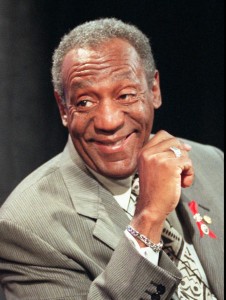Listen, download, or podcast this interview
Warning: The “F-word” is used in this interview. Do not listen or download if you have a problem with that.
Guest: Hugh Fink
Emmy Award winning TV comedy writer (for “Outstanding Writing for a Comedy Program”), stand-up comedian, TV producer.
Hugh Fink’s credits include: Saturday Night Live, The Drew Carey Show, The Late Late Show with Craig Ferguson, The Showbiz Show with David Spade.
Greg Zeigerson talks with Hugh Fink about his career and how comedy works.

Topics covered include …
How Greg Zeigerson has known Hugh Fink since their college years at New York University. About the name “Hugh Fink” … reactions to that name from birth and beyond.
Deciding to be a comedian. The influence of government monopoly, Indianapolis Water Company. Hugh’s comedic quest to expose hypocrisy and stupidity.
The influence of having a younger sister with Down Syndrome – how this contributed to developing a “sense of wanting to lighten things up” and overcome stress and sadness.
What do all good comedians have in common? “Every good comedian has some anger” says Hugh Fink. He explains why.
Different approaches to comedy. The problem with the formulaic “surprises” used by many sitcoms.
The joke Hugh Fink wrote for Steve Martin (at one of Steve Martin’s Academy Awards monologues) that didn’t get used. Teaching comedy at UCLA 10 years ago and the Gallagher Exclusion Test.
What makes a good and original comedian and how good comedy comes from some aspect of the comedian’s actual personality. Australian comedian, Barry Humphries/Dame Edna as an example of good and effective comedy.

Barry Humphries as Dame Edna Everage
Another example is David Spade. Comparing the real David Spade with David Spade, the comedian. Explains Hugh Fink: [paraphrased] “It’s the guy who got the cr– kicked out of him as a kid. The small, slightly-built nerdy kid who was ridiculed … but then discovered his own razor sharp wit … taking on people and things that were more powerful than he was.”
Why Hugh Fink cancelled his appearance at a benefit concert at his old High School – North Central High School, Indianapolis – in 2006. How school organizers considered part of his proposed comedy routine highly inappropriate, upsetting, and offensive. Two days before he was to appear, the school asked him to change it.
Listen to the “offensive” comedy routine and judge for yourself: CLICK HERE [The offending line: “I’m glad I got to meet the school principal, Mr. Quandt. He seems like a cool guy. Though I’m not sure why he’d ask me, ‘Where’s the best place to score weed?’ “]
How “what is funny” has changed. How comedy done in poor taste can’t hurt the recipients of the comedy, but it can lower the standards of the profession.
Hugh Fink’s influences and favorites include:

… Bill Cosby!

… The Marx Brothers!

… Martin Mull!
About the pilot for a new late night talk show with Steve Schirripa (Sopranos) that Hugh Fink has been working on.
Steve Schirripa
How Hugh Fink got started with his stand-up career after winning a college contest held at the Comic Strip club – sponsored by Columbia Pictures. He co-won with Robert Smigel.
Meeting David Spade and producing “Spade in America”. Working at Saturday Night Live. Working on the Drew Carey Show. Working on the Craig Ferguson talk show as Head Writer.
Why Hugh Fink intentionally moved away from performing and towards writing and producing shows. But now would like to get back in front of the camera.


